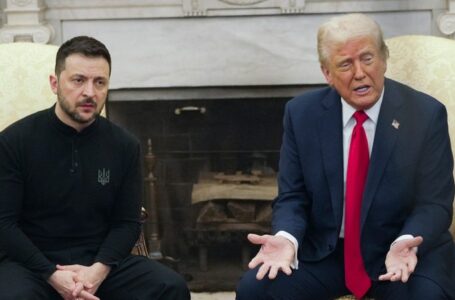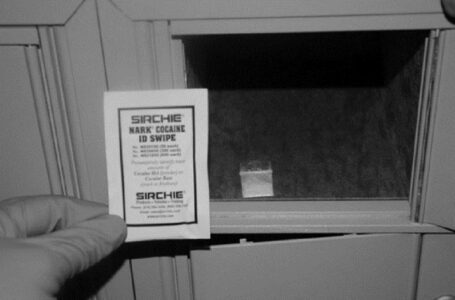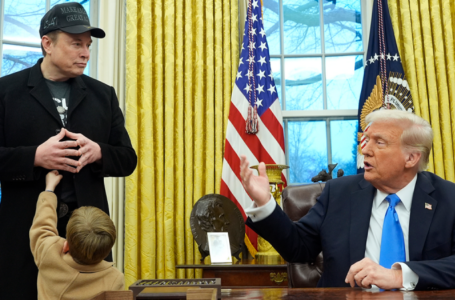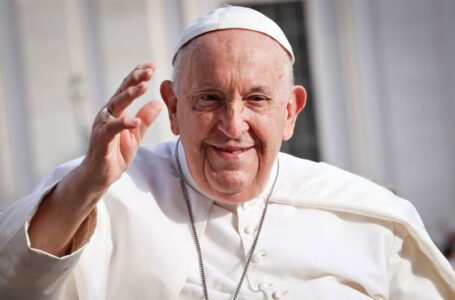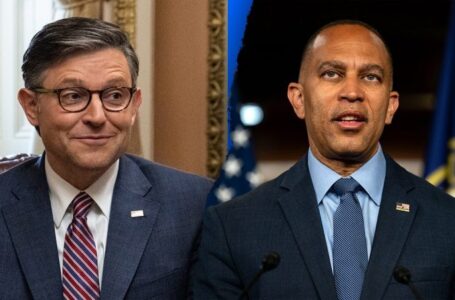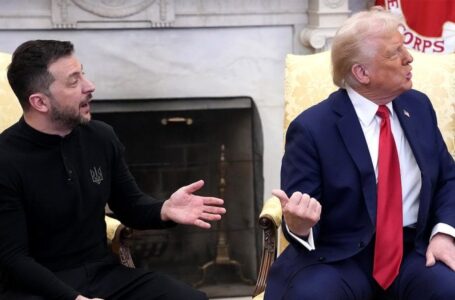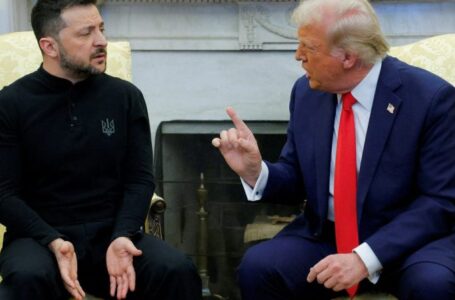Julian Assange ends stalemate with US, exchanging guilty plea for his freedom
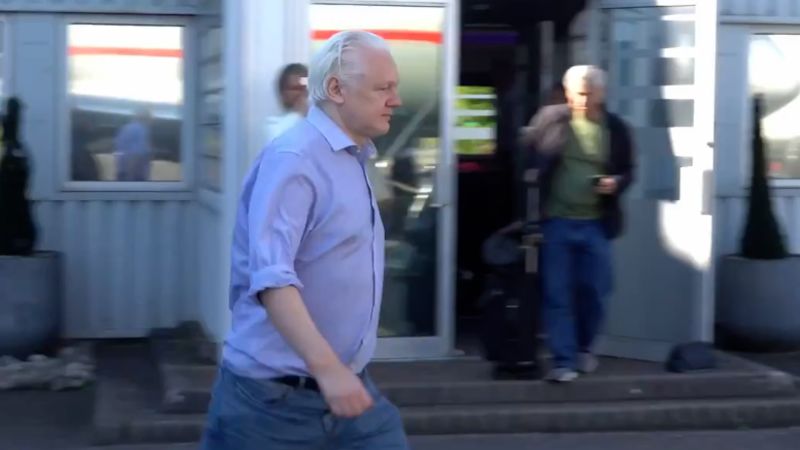

WikiLeaks founder Julian Assange walked free for the first time in 12 years after a US judge signed off on his unexpected plea deal on Wednesday morning.
Assange walked out of the courtroom as a free man into the bright Saipan sunshine, raising one hand to a gaggle of the world’s press before departing by car for the airport where he caught a flight to the Australian capital Canberra.
Speaking outside the court, Assange’s US lawyer Barry Pollack said he had “suffered tremendously in his fight for free speech and freedom of the press.”
“The prosecution of Julian Assange is unprecedented in the 100 years of the Espionage Act,” Pollack told reporters. “Mr. Assange revealed truthful, newsworthy information … We firmly believe that Mr. Assange never should have been charged under the Espionage Act and engaged in (an) exercise that journalists engage in every day.”
In a stunning turn of events, the 52-year-old Australian was released from a high-security prison in London on Monday afternoon and had already boarded a private jet to leave the United Kingdom before the world even knew of his agreement with the US government.
He appeared in a US courtroom on the Northern Mariana Islands to formalize the agreement, officially pleading guilty to conspiring unlawfully to obtain and disseminate classified information over his alleged role in one of the largest breaches of classified material in US military history.
“I am, in fact, guilty of the charge,” Assange told the court in Saipan.
The remote Pacific island chain is a US territory, located around 6,000 kilometers (3,700 miles) west of Hawaii.
Assange – who has long held a deep mistrust of the US, even going so far as accusing it of allegedly plotting his assassination – was hesitant about stepping foot in the continental US, and so prosecutors asked for all proceedings to take place in a day in a US federal court based in Saipan, the largest island and capital of the Northern Mariana Islands.
Justice Department prosecutors also said the court on the islands made logistical sense as it is closer to Australia, where Assange will ultimately travel to following the conclusion of his legal battle.
Kevin Rudd, Australia’s Ambassador to Washington and former prime minister who helped facilitate negotiations with the US, watched proceedings in the courtroom.
‘I hope there will be some peace restored’
At the start of the plea deal hearing the judge reminded Assange that he was back in the United States and that this court was the “smallest, youngest, and furthest from nation’s capital.” Assange looked relaxed in the courtroom, wearing a black jacket and brown tie, while next to his attorneys.
Asked by the judge, Honorable Ramona Manglona, to describe what he had done to be charged, Assange said: “Working as a journalist, I encouraged my source to provide information that was said to be classified in order to publish that information. I believe that the First Amendment protected that activity… I believe the First Amendment and the Espionage Act are in contradiction with each other, but I accept that it would be difficult to win such a case given all these circumstances.”
In her sentencing, the judge said Assange was entitled to a credit of time served for his incarceration at a British prison.
“It appears that your 62 months imprisonment is fair and reasonable,” Manglona said. “You will be able to walk out of this courtroom a free man. I hope there will be some peace restored.”
The judge told Assange that “timing matters” and she would have been less inclined to accept a plea 10 years ago. She also said there was no personal victim in this case — Assange’s action did not lead to any known physical injury.
For years, the US argued that the self-appointed champion of free speech endangered lives and posed a threat to national security.
Following his release, the US Department of Justice said in a statement that Assange is barred from returning to the US without permission, “pursuant to the plea agreement.”
Assange and his whistleblower website rose to global prominence in 2010 after a string of leaks from former Army intelligence analyst Chelsea Manning related to the wars in Iraq and Afghanistan.
The website posted a video showing a US military helicopter firing on and killing two journalists and several Iraqi civilians in 2007. Several months later, it disclosed more than 90,000 classified Afghan war documents dating back to 2004.
Later in 2010, he was wanted in Sweden to answer questions over allegations of sexual assault that had emerged.
Two years later, Assange sought political asylum within the Ecuadorian embassy in west London. He remained there for almost seven years until the Metropolitan Police entered his safe haven in 2019 acting on an extradition warrant from the US Justice Department. British officers moved in after Ecuador withdrew his asylum and invited authorities into the embassy, citing Assange’s bad behavior.
He had originally been facing 18 criminal charges relating to his organization’s release of massive troves of sensitive information into the public domain.
Instead, as part of the agreement brokered with the Justice Department, Assange entered a guilty plea to a single criminal charge.
His punishment was 62 months in prison, but he will not spend any time behind bars in the US, as the sentence equates to the five years he fought extradition while incarcerated at London’s Belmarsh prison.
The deal brokered with the US is the final act of a 14-year legal drama that has spanned continents, though it was not immediately clear why it reached a resolution now.
In pictures: WikiLeaks founder Julian Assange
Australian officials have been pushing diplomatic angles for some time. It was widely thought that Prime Minister Anthony Albanese had raised Assange’s case when he visited the White House last October.
Speaking in parliament on Wednesday, the Australian leader said he was “pleased that (Assange) was on his way home to Australia to reunite with his family.”
“This outcome has been the product of careful, patient and determined work,” Albanese said, adding “this is what standing up for Australians around the world looks like.”
“Regardless of your views about his activities and they will be varied, Mr. Assange’s case has dragged on for too long. I have said repeatedly that there was nothing to be gained by his continued incarceration,” Albanese said.
US President Joe Biden had in recent months alluded to a possible deal pushed by Australian government officials to return Assange to Australia. However, the administration distanced itself from the developments on Tuesday.
ASSANGE: KEY MOMENTS
2006: Julian Assange founds whistleblowing website, WikiLeaks.
Apr 2010: WikiLeaks posts video showing a US helicopter killing civilians in Iraq in 2007.
Jul 2010: WikiLeaks posts classified documents related to the Afghanistan war.
Aug 2010: Sweden launches probe of Assange after claims of sexual assault emerge, which he denies.
Jun 2012: Assange enters Ecuadorian embassy in London seeking political asylum.
Apr 2019: British police arrest Assange on behalf of the US, requests his extradition after Ecuador withdraws his asylum.
Jun 2022: UK home secretary signs his extradition order, which he later appeals.
May 2024: Assange wins permission to bring new extradition appeal.
Jun 2024: Assange strikes US plea deal allowing him to leave UK prison and return to Australia.
Regardless, Assange’s wife, Stella, said Tuesday that she was “elated” at the news her husband was free from Belmarsh.
“Frankly, it’s just incredible. I don’t know. It kind of feels like it’s not real,” she told BBC Radio 4’s Today program. She spoke from Australia, where she flew with their two children on Sunday morning before Assange’s release. She said she had not yet told their young children why they had traveled to their father’s homeland.
He said Assange is “excited to be a free man again” and looking forward to doing normal things he hasn’t been able to do after being held in a maximum-security prison for the last five years. He said his brother enjoys Australian bird watching, swimming in the ocean and sharing a meal with his wife and children.
“The work that WikiLeaks and the work that Julian did – it’s historical now,” Shipton said.
“The collateral murder video that exposed Reuters journalists being killed by a helicopter gunship in Baghdad. I think those are historical moments, historical publications that went all around the world, torture in Guantanamo Bay, as well as corruption in the banking system, toxic waste dumping. This is a legacy of WikiLeaks and Julian Assange,” he added.
Once the WikiLeaks founder touches down in Australia, one thing on his to-do list will be paying off his government for the ride home. Assange will owe $520,000 for the charter flight, according to the international campaign that called for his release.
To cover the purported expenses as well as other funds for his recovery, the campaign has launched an appeal, asking supporters for donations.

